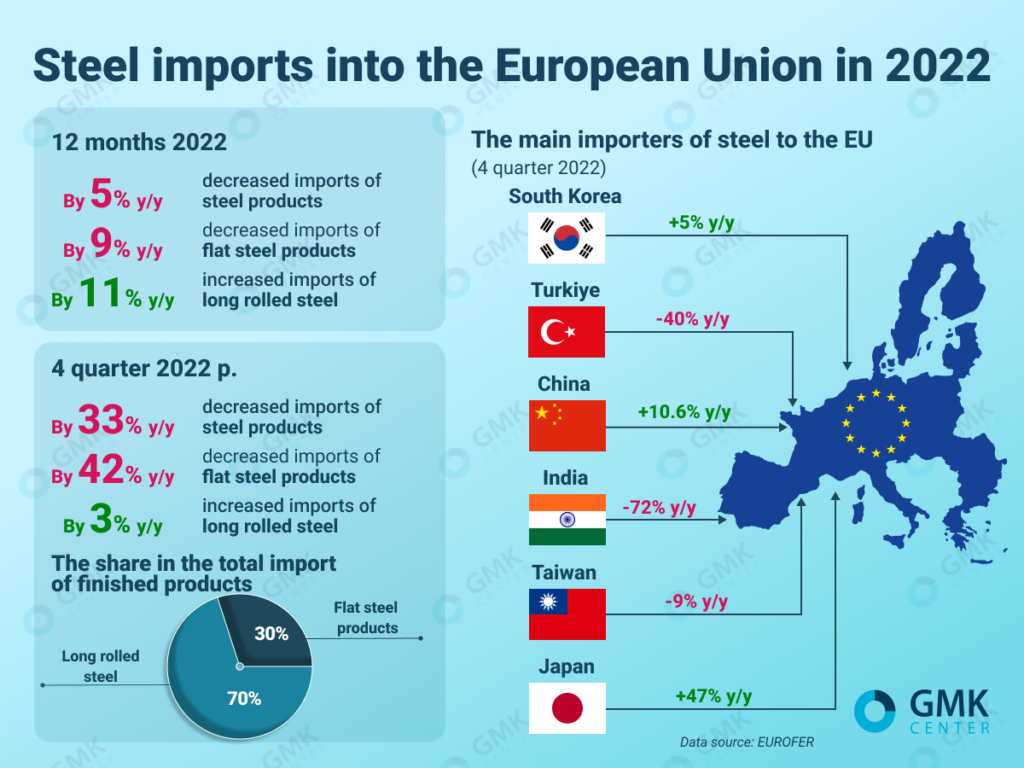G-7's Consideration Of Reduced Tariffs For Chinese Imports: Implications And Analysis

Table of Contents
2. Economic Implications of Lower Tariffs on Chinese Imports:
2.1. Impact on Consumer Prices:
Reduced tariffs on Chinese imports could lead to significantly lower consumer prices. Goods like electronics, clothing, and household appliances, which heavily rely on Chinese manufacturing, would likely become more affordable. This could boost consumer spending and potentially mitigate inflationary pressures, especially in the face of global economic uncertainty. However, the extent of price reductions will depend on factors like the magnitude of tariff cuts, existing supply chain structures, and the elasticity of demand for specific products.
- Lower import costs: Directly translates to lower prices on store shelves.
- Increased consumer purchasing power: More disposable income for consumers.
- Potential for increased competition: Encouraging domestic businesses to improve efficiency.
- Impact on inflation: Could potentially curb inflation, although this effect is complex and depends on other economic factors.
2.2. Effects on Businesses:
Businesses importing goods from China would experience substantial cost savings with reduced tariffs. This increased competitiveness could allow them to lower prices, expand market share, and enhance profitability. Furthermore, the potential for lower input costs could stimulate increased investment in China and the expansion of existing supply chains. However, businesses also need to consider potential disruptions to existing supply chain arrangements and the risks associated with greater reliance on a single source of goods.
- Reduced import costs: Lowering the overall cost of production and increasing profit margins.
- Enhanced competitiveness: Allowing businesses to offer more competitive prices.
- Increased investment in China: Potentially leading to job creation and economic growth.
- Supply chain resilience: Concerns about over-reliance on Chinese manufacturers require careful evaluation.
2.3. Potential for Increased Trade Deficit:
Lower tariffs could potentially exacerbate the existing trade deficit with China. Increased imports from China, without a corresponding increase in exports, would widen the trade imbalance. While a trade deficit isn't inherently negative, a large and persistent deficit can lead to concerns about currency fluctuations, job displacement in domestic industries, and potential geopolitical vulnerabilities. Careful monitoring and mitigation strategies would be crucial to minimize the negative consequences of any increased trade deficit.
- Increased imports from China: Leading to a larger trade deficit.
- Currency fluctuations: Potentially impacting exchange rates and international trade.
- Domestic job displacement: Possible if domestic industries struggle to compete with cheaper imports.
- Geopolitical vulnerabilities: Over-reliance on one country for essential goods poses risks.
2. Geopolitical Implications and Risks:
2.1. Impact on US-China Relations:
The G-7's decision on tariffs will have significant ramifications for US-China relations. Reduced tariffs could be interpreted as a gesture of goodwill, potentially easing existing trade tensions and fostering improved dialogue. Conversely, it might be seen as a sign of weakness or appeasement, emboldening China and further straining relations with certain G7 members. The overall impact will depend heavily on the broader geopolitical context and the accompanying diplomatic efforts.
- Potential for de-escalation: Reduced tensions and improved dialogue.
- Risk of appeasement: Potential perception of weakness by some G7 members.
- Impact on other trade disputes: Could influence negotiations on other trade issues.
- Importance of accompanying diplomatic efforts: Crucial for maximizing positive outcomes.
2.2. Impact on Other G7 Nations:
The decision to reduce tariffs will affect other G7 nations differently. Some may benefit from lower import costs, while others might face challenges due to increased competition from Chinese goods. Concerns about unfair trade practices and the need for a level playing field will likely feature prominently in inter-G7 discussions. Ensuring fair competition and preventing market distortions will be key to maintaining unity and cooperation within the G7.
- Differing national interests: Impact on G7 members will vary considerably.
- Concerns about unfair competition: Need for mechanisms to ensure fair trade practices.
- Potential for trade disputes among G7 members: A risk if not managed effectively.
- Need for coordinated G7 strategy: Essential for managing the impact on the global economy.
2.3. National Security Concerns:
Reduced tariffs may raise national security concerns, particularly regarding reliance on China for essential goods and technologies. Specific sectors like technology, critical infrastructure, and defense-related industries might experience increased vulnerability if heavily reliant on Chinese imports. A balanced approach is crucial, carefully weighing economic benefits against potential security risks. Diversification of supply chains and investment in domestic production capacity may be necessary to mitigate these concerns.
- Increased vulnerability in key sectors: Technology, critical infrastructure, and defense.
- Need for supply chain diversification: Reducing reliance on a single source of goods.
- Investment in domestic production: Strengthening national security and resilience.
- Balancing economic growth with security: A key challenge for G7 governments.
2. Analysis of the G7's Decision-Making Process:
2.1. Internal G7 Divisions:
Internal divisions within the G7 regarding tariff reductions are likely. Different member states have varying economic and geopolitical priorities, potentially leading to disagreements on the best course of action. Reaching a consensus will require careful negotiation and consideration of diverse perspectives. The outcome will reflect the balance of power and the prevailing geopolitical climate.
- Differing economic priorities: Some members might prioritize economic growth, while others focus on national security.
- Geopolitical considerations: Varying relationships with China among G7 members.
- Negotiating a compromise: Requires balancing competing interests and achieving consensus.
- The role of leadership: Strong leadership will be essential in navigating these divisions.
2.2. Influence of Lobbying Groups:
Business lobbies and advocacy groups will play a significant role in shaping the G7's decision. Consumer groups might advocate for lower prices, while industry groups could push for protectionist measures. Understanding the diverse perspectives of stakeholders is essential for informed policymaking. Transparency and accountability in the decision-making process are crucial to building public trust.
- Influence of business lobbies: Powerful influence on government policy.
- Consumer advocacy groups: Promoting consumer interests and lower prices.
- Transparency and accountability: Ensuring the decision-making process is open and fair.
- Balancing competing interests: Requires careful consideration of all stakeholders' perspectives.
3. Conclusion: Navigating the Complexities of G-7's Consideration of Reduced Tariffs for Chinese Imports
The G-7's consideration of reduced tariffs for Chinese imports presents a complex interplay of economic and geopolitical factors. While lower tariffs could offer benefits such as lower consumer prices and increased business competitiveness, they also pose risks, including a wider trade deficit and potential national security concerns. A balanced approach is crucial, prioritizing both economic growth and national security. Further research and open discussions on the implications of the G-7’s consideration of reduced tariffs for Chinese imports, and the potential consequences for global trade and international relations are essential to navigate this challenging landscape effectively. We encourage you to continue exploring this topic and its broader impact on the global economy.

 Enimerosi Bathmologias Euroleague I Niki Tis Monako Sto Parisi
Enimerosi Bathmologias Euroleague I Niki Tis Monako Sto Parisi
 Alex Eala Targets Strong French Open Performance
Alex Eala Targets Strong French Open Performance
 Trumps Demands Forcing A Deal From Republicans
Trumps Demands Forcing A Deal From Republicans
 Recenzja Porsche Cayenne Gts Coupe Plusy I Minusy
Recenzja Porsche Cayenne Gts Coupe Plusy I Minusy
 New Ferrari Service Centre Opens Its Doors In Bengaluru
New Ferrari Service Centre Opens Its Doors In Bengaluru
